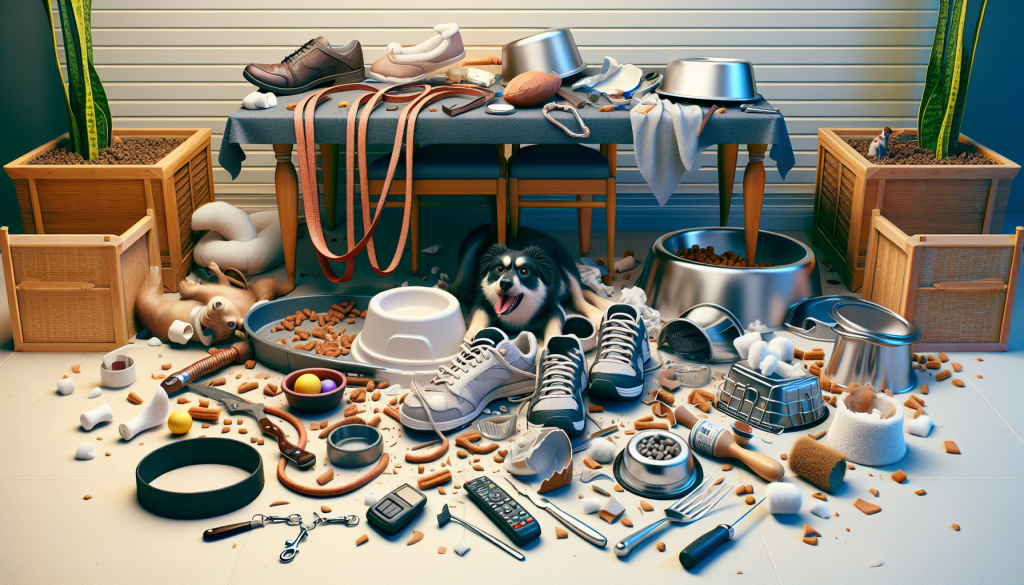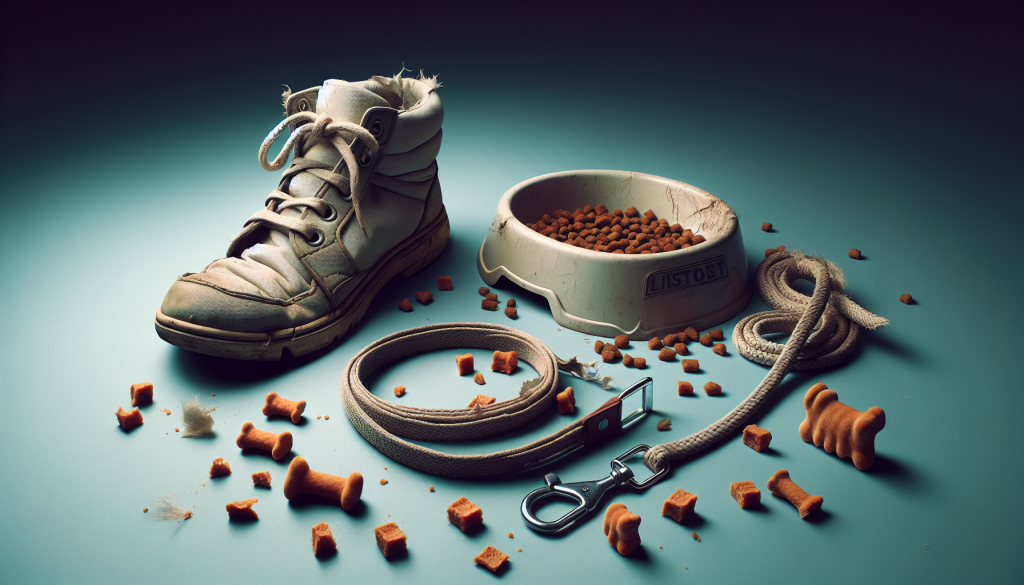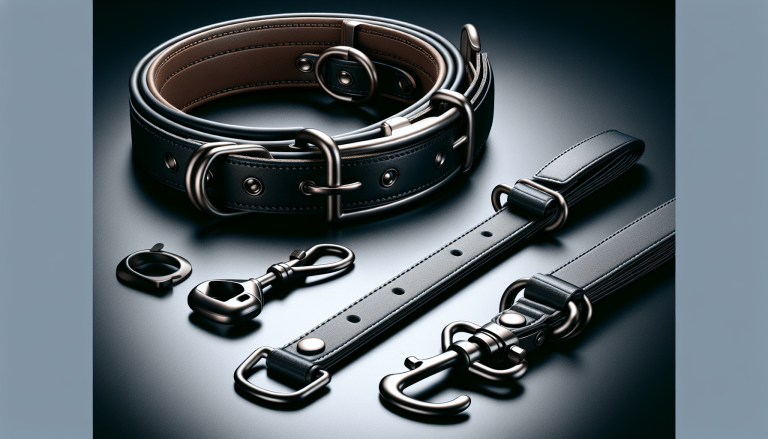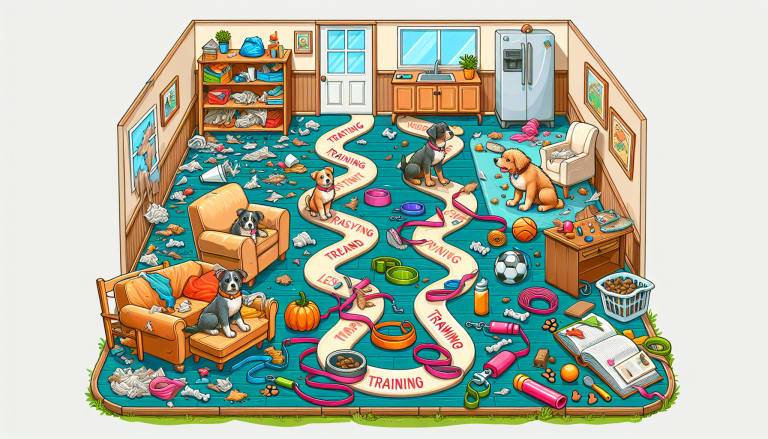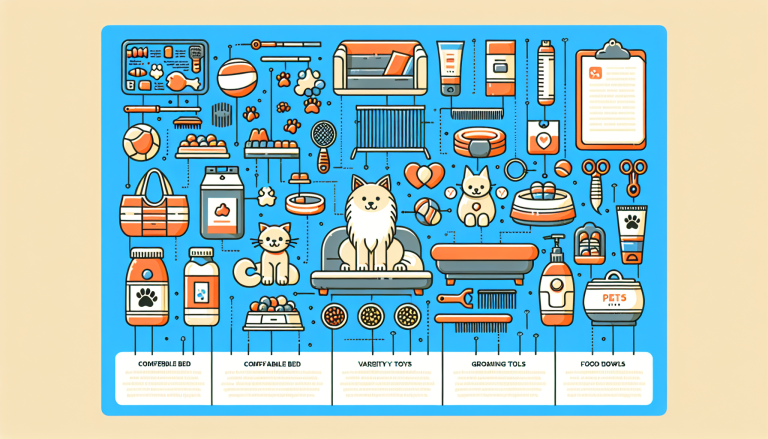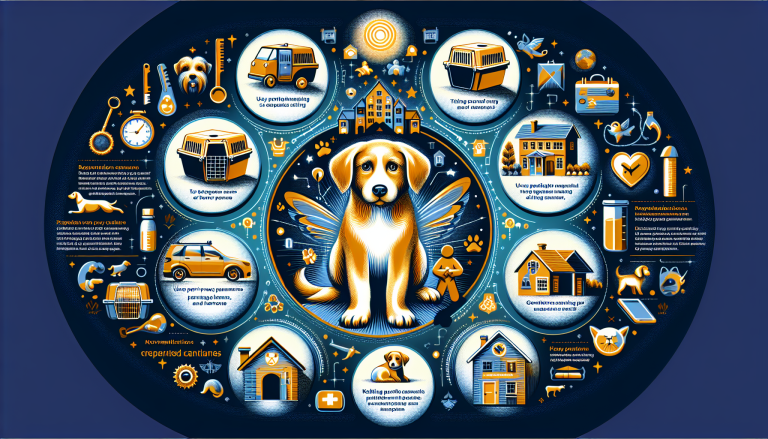Owning a pet is an incredibly rewarding experience, but let’s face it, we all make mistakes along the way. From inadvertently overfeeding to ignoring important training techniques, being a pet owner can come with its fair share of challenges. But worry not, because in this article, you will discover the 10 most common mistakes all pet owners make and learn how to avoid them. So, whether you’re a first-time pet owner or have been caring for furry friends for years, get ready to improve your pet parenting skills and create an even stronger bond with your beloved companion.
Table of Contents
ToggleNot Providing Proper Training
Neglecting Regular Training Sessions
One common mistake that pet owners often make is neglecting regular training sessions with their pets. Training is crucial for establishing boundaries and teaching your pet appropriate behaviors. By skipping training sessions, you are missing out on valuable opportunities to reinforce good behavior and correct any problematic behaviors. Consistency is key when it comes to training, so make sure you set aside dedicated time each day to work with your pet.
Failing to Establish Boundaries and Rules
Another mistake many pet owners make is failing to establish clear boundaries and rules for their pets. Without these guidelines, your pet may become confused and exhibit unwanted behaviors. Take the time to set up rules for your pet, such as where they are allowed to go in the house or what items are off-limits. Consistency in enforcing these rules is crucial to ensure that your pet understands what is expected of them.
Inconsistency in Training Techniques
In addition to neglecting regular training sessions and failing to establish boundaries, inconsistent training techniques can also hinder your pet’s progress. It’s important to choose a training method that works for you and stick to it. Switching between different techniques can confuse your pet and make it harder for them to understand what is expected of them. Consistency and patience are key when it comes to training your pet effectively.
Neglecting Veterinary Care
Skipping Regular Check-ups and Vaccinations
Neglecting regular veterinary check-ups and vaccinations is a common mistake that pet owners make. Regular check-ups are essential for detecting any underlying health issues early on and ensuring that your pet remains in good health. Vaccinations are also crucial for preventing common illnesses and diseases. By skipping these appointments, you are putting your pet’s health at risk.
Ignoring Symptoms of Illness or Injury
Another mistake pet owners often make is ignoring symptoms of illness or injury in their pets. Animals cannot communicate their discomfort or pain verbally, so it’s essential to be observant and take note of any changes in behavior or physical appearance. If you notice any unusual symptoms or behaviors, such as loss of appetite, lethargy, or limping, it’s crucial to seek veterinary care as soon as possible to prevent further complications.
Delaying Dental Care
Dental care is often overlooked by pet owners, but it is a crucial aspect of their overall health and well-being. Neglecting regular dental care can lead to dental diseases, which can be painful and affect their ability to eat. Make sure to brush your pet’s teeth regularly and schedule dental check-ups with your veterinarian. Additionally, providing dental chews or toys can help keep their teeth clean and healthy.
Feeding Inadequately
Inappropriate Portion Sizes
Feeding your pet inappropriate portion sizes is a common mistake that can have detrimental effects on their health. Overfeeding can lead to obesity, which can increase the risk of various health issues, including diabetes and joint problems. On the other hand, underfeeding can result in malnutrition and poor overall health. Consult with your veterinarian to determine the appropriate portion sizes for your pet based on their age, breed, and activity level.
Feeding Low-Quality Commercial Food
Choosing low-quality commercial food for your pet is another mistake that can negatively impact their health. Poor-quality food often contains fillers and unhealthy ingredients that do not provide adequate nutrition. Opt for high-quality pet food that is formulated to meet your pet’s nutritional needs. Reading the labels and understanding the ingredients list can help you make an informed decision when it comes to choosing the right food for your furry friend.
Lack of Variety in Diet
Feeding your pet the same food every day can lead to a lack of variety in their diet, which may result in nutrient deficiencies. Just like humans, pets benefit from a varied diet that includes different types of proteins, fruits, and vegetables. Introducing new foods gradually and monitoring any reactions or allergies can help ensure that your pet receives a balanced and nutritious diet. Consider consulting with a veterinarian or a pet nutritionist for guidance on providing a well-rounded diet for your pet.
Ignoring Dental Health
Neglecting Regular Teeth Brushing
Neglecting regular teeth brushing is a common mistake that pet owners make when it comes to their pet’s dental health. Just like humans, pets can develop plaque and tartar buildup, which can lead to dental diseases and discomfort. Brushing your pet’s teeth regularly with a pet-safe toothpaste and toothbrush can help prevent these issues. Make it a part of your daily routine to ensure that your pet’s teeth and gums remain healthy.
Skipping Dental Check-ups
In addition to regular teeth brushing, scheduling regular dental check-ups with your veterinarian is crucial for your pet’s dental health. A professional dental cleaning can remove stubborn plaque and tartar that brushing alone may not be able to eliminate. During these check-ups, your veterinarian can also identify any dental issues early on and recommend appropriate treatments or interventions.
Not Providing Dental Chews or Toys
Providing dental chews or toys is another aspect of dental care that pet owners often overlook. Chewing on appropriate toys or treats can help remove plaque and tartar buildup, promoting good dental health. Look for dental chews that are specifically designed to aid in teeth cleaning and ensure that they are safe for your pet to chew on. Regularly inspect these toys to ensure they are still in good condition and replace them when necessary.
Lack of Exercise
Not Engaging in Daily Physical Activities
A lack of daily physical activities is a common mistake that can negatively impact your pet’s overall health and well-being. Dogs, in particular, require regular exercise to maintain a healthy weight, stimulate their minds, and prevent behavioral problems. Make it a priority to engage in physical activities with your pet, such as walks, playing fetch, or participating in agility training. The specific exercise needs will vary depending on your pet’s breed, age, and energy level.
Neglecting Mental Stimulation
In addition to physical exercise, neglecting mental stimulation can also be detrimental to your pet’s well-being. Dogs, cats, and other pets benefit from activities that challenge their minds and prevent boredom. Puzzle toys, interactive games, and training sessions that incorporate problem-solving can help keep your pet mentally sharp and prevent behavioral issues. Set aside time each day to engage your pet in mentally stimulating activities.
Inadequate Socialization
Proper socialization is essential for pets to develop appropriate social skills and avoid behavioral issues. Many pet owners make the mistake of not exposing their pets to different environments, people, and animals from a young age. Gradually introducing your pet to new experiences in a positive and controlled manner can help them become more confident and well-adjusted. Consider enrolling in puppy classes or seeking guidance from a professional trainer to ensure that your pet receives adequate socialization.
Not Grooming Regularly
Neglecting Brushing or Bathing
Neglecting regular brushing or bathing can lead to a variety of issues, including matted fur, skin irritations, and unpleasant odors. The frequency of brushing or bathing will depend on your pet’s breed and coat type. Regular brushing helps remove loose hair, prevents matting, and promotes a healthy coat. Bathing should be done using pet-safe products and should not be overdone, as it can strip the natural oils from your pet’s skin.
Ignoring Nail Trimming
Neglecting nail trimming is another common grooming mistake that pet owners make. Overgrown nails can cause discomfort and pain to your pet, making it difficult for them to walk or run properly. Regular nail trims are essential to prevent this issue. If you are uncomfortable trimming your pet’s nails yourself, consider taking them to a professional groomer or consulting with your veterinarian for guidance.
Neglecting Ear Cleaning
Ear infections are a common issue that can be prevented by regular ear cleaning. Neglecting ear cleaning can lead to a buildup of wax, debris, and bacteria. Use a pet-approved ear cleaner and gently clean your pet’s ears using cotton balls or pads. Avoid inserting anything too deep into the ear canal to prevent injury. If you notice any signs of ear infection, such as redness, odor, or discharge, consult with your veterinarian for appropriate treatment.
Improper Identification
Lack of Microchipping
Lack of microchipping is a mistake that can have serious consequences if your pet goes missing. Microchipping is a simple and effective way to ensure that your pet can be easily identified if they are lost or stolen. A tiny microchip, about the size of a grain of rice, is inserted under your pet’s skin and can be scanned by a veterinarian or animal shelter to retrieve your contact information. Make sure to keep your contact details updated in the microchip registry.
Not Regularly Updating ID Tags
In addition to microchipping, not regularly updating your pet’s ID tags is another common mistake. If your pet wears a collar with identification tags, it’s essential to ensure that the information is accurate and up to date. Check the tags regularly and make necessary updates if you move or change phone numbers. This will increase the chances of your pet being reunited with you if they become lost.
Inadequate Measures to Prevent Escape
Taking inadequate measures to prevent your pet from escaping is another mistake that can have dire consequences. Pets can be curious and may try to find a way to explore the outside world on their own. Make sure your home and yard are secure to prevent escapes. This may involve repairing fences, creating barriers, or using pet gates or crates when necessary. Taking proactive steps to prevent escape can help ensure your pet’s safety.
Ignoring Behavioral Issues
Failure to Address Aggression or Fear
Ignoring behavioral issues, such as aggression or fear, can be dangerous for both your pet and others around them. Aggressive behaviors should never be ignored or dismissed, as they can escalate and lead to injuries. Seek professional help from a veterinarian or animal behaviorist to address these issues safely and effectively. Addressing fear and anxiety-related behaviors is also crucial for your pet’s well-being and quality of life.
Disregard for Separation Anxiety
Separation anxiety is a common issue that can cause distress in pets when they are left alone. Many pet owners make the mistake of disregarding or not addressing separation anxiety. This can lead to destructive behaviors, excessive barking, and even self-injury. If your pet exhibits signs of separation anxiety, such as excessive drooling, pacing, or destructive behavior, consult with a veterinarian or animal behaviorist for guidance on managing and treating this condition.
Not Resolving Destructive Behavior
Destructive behavior, such as chewing on furniture or excessive scratching, is often a sign of boredom or unmet needs. Ignoring or not addressing this behavior can result in frustration for both you and your pet. Identifying the underlying cause of the destructive behavior and providing appropriate outlets, such as interactive toys or scratching posts, can help redirect their energy and prevent further damage to your belongings.
Leaving Them Alone for Extended Periods
Inadequate Companionship or Interaction
Leaving your pet alone for extended periods without adequate companionship or interaction is a mistake that can lead to loneliness and anxiety. Pets are social beings and thrive on companionship. If you have a busy schedule, consider hiring a pet sitter, enlisting the help of a trusted friend or family member, or even exploring doggy daycare options. Ensuring that your pet receives regular social interaction can prevent feelings of isolation and promote overall well-being.
Ignoring Separation Distress
Separation distress is a common issue that many pets experience when left alone for extended periods. Ignoring or not addressing this distress can lead to increased anxiety and negative behaviors. Gradual desensitization and counterconditioning techniques can help your pet become more comfortable with being alone. Consult with a veterinarian or animal behaviorist for guidance on how to manage and alleviate separation distress.
Leaving Them in Unsafe Environments
Leaving your pet in unsafe environments while you are away is another mistake that can put their safety at risk. Ensure that the area where your pet will be spending their alone time is secure and free from any hazards. Remove any toxic plants, secure loose cords or wires, and provide appropriate confinement or confinement options to prevent accidents or injuries. Leaving them in a safe and comfortable environment will give you peace of mind and ensure their well-being.
Not Providing Enrichment
Lack of Toys and Interactive Games
Not providing enough toys and interactive games for your pet is a common mistake that can lead to boredom and destructive behavior. Pets need mental stimulation to keep their minds engaged. Provide a variety of toys, such as puzzle toys and interactive treat dispensers, to keep your pet entertained and mentally challenged. Rotating toys regularly can also help prevent monotony and increase their interest.
Ignoring Environmental Enrichment
In addition to toys, environmental enrichment is crucial for your pet’s overall well-being. Pets benefit from a stimulating environment that includes things like scratching posts for cats, hiding spots, and vertical spaces for climbing. Consider incorporating elements like perches, tunnels, or scratching posts to create an enriched living space for your pet. This will help satisfy their natural instincts and prevent boredom.
Neglecting Mental Stimulation
Neglecting mental stimulation can lead to boredom and behavioral issues in pets. Engaging your pet in activities that challenge their minds, such as obedience training or interactive games, can keep them mentally sharp and prevent boredom. Consider teaching your pet new tricks or providing problem-solving toys to keep their minds engaged. Mental stimulation is just as important as physical exercise for your pet’s overall well-being.
In conclusion, being a pet owner comes with great responsibility. Avoiding these common mistakes can help ensure that your pet leads a happy and healthy life. By providing proper training, veterinary care, appropriate nutrition, dental health care, regular exercise, grooming, identification, address behavioral issues, avoiding long periods of solitude, and providing enrichment, you can create a loving and nurturing environment for your furry friend. Remember, your pet relies on you for their well-being, so make sure to prioritize their needs and provide them with the care and attention they deserve.

